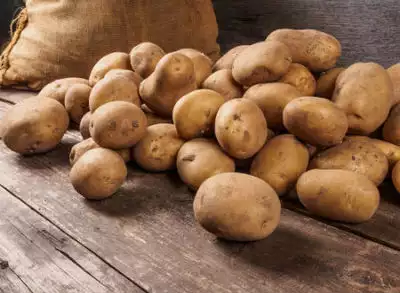Potatoes are a favorite food all over the globe, loved for their versatility. Despite this, the nutritional value of potatoes has been questioned in recent years. At the same time, they may seem like a mere source of carbs to some, but potatoes are packed full of essential nutrients. They contribute to maintaining a balanced diet. In addition to fiber and potassium, potatoes have a wide range of nutrients. In this article, you will learn about the potato nutrition facts.
- Potatoes: A Nutritional Powerhouse
In terms of potato nutrition, it’s not just carbohydrates. A medium potato with the skin on is low-fat and contains around:
- 110 calories
- 26 grams (g) of carbohydrates
- Protein 3 grams
- 2 grams fiber
- 620 milligrams is about 18% of your daily potassium intake.
- Vitamin C (about 30% of recommended daily intake): 27 milligrams
Potatoes are naturally gluten-free, making them a healthy food option for those who are sensitive to gluten or follow a gluten-free lifestyle.
- An Excellent Source Of Dietary Fiber
Their fiber content is one of the greatest health benefits. Fiber is crucial for digestion, especially in potatoes with the skin intact. Dietary fiber helps maintain healthy digestion by regulating bowel movements.
Fiber is also good for your heart because it helps lower cholesterol. Insufficient fiber intake is linked to heart disease. Therefore, potatoes are a good addition to your heart-healthy diet. Fiber-rich potatoes can make you feel satiated for longer. This will help with weight management, reducing the tendency to eat too much.
- Vitamin B6: Good Source
Potatoes contain vitamin B6, essential for brain development, immune health, and energy metabolism. Vitamin B6 aids the body in converting food into energy. Vitamin B6 also helps produce neurotransmitters essential for mood regulation, including serotonin.
Vitamin B6 deficiencies can lead to certain types of anemia. You can meet your daily vitamin needs by including potatoes in your diet. They also help support the body’s metabolic functions.
- Low In Fat And Cholesterol
One of the most common facts about potato nutrition that many misunderstands is its fat level. Because potatoes are naturally cholesterol-free and low-fat, they’re a great choice for those who wish to maintain a heart-healthy lifestyle. To keep potatoes healthy, they must be cooked properly. To maximize the health benefits of potatoes, it is best to boil, bake, or roast them. Excessive butter, cream, or other fats will only increase their calories and fat.
With healthier cooking and toppings like herbs, olive oils, or yogurt, you can still enjoy the nutritional value of this versatile veggie without sacrificing flavor.
- Antioxidant-Rich Varieties
Along with the white or yellow potatoes that are more commonly found, many other colors are available, such as purple and red. These vibrant colors are not only eye-catching but they’re also loaded with antioxidants. The anthocyanins in colored potatoes and the carotenoids they contain have been shown to reduce inflammation and lower the risk of chronic diseases such as cancer, cardiovascular disease, and diabetes. If you include a wide variety of potato varieties in your dishes, this versatile vegetable can provide you with more health benefits.
- Versatile And Easy To Add To Your Diet
Potatoes are also versatile, which is another great reason to incorporate them into your diet. Innumerable ways can be used to prepare potatoes, making it easy to add them to many meals. There are numerous methods of consuming potatoes. They are delicious when pureed, broiled, and baked or used in stews or salads. Due to their neutral flavor, potatoes complement a diverse array of proteins, spices, and herbs.
Conclusion
In addition to carbohydrates, potatoes are a rich source of nutrients. These nutrients contribute to a healthy lifestyle. A nutritional powerhouse, potatoes contain various nutrients, including fiber that supports heart health and digestion, as well as potassium, which helps regulate blood pressure. Because of their high vitamin C and B6 content and the antioxidants they contain, potatoes are important for supporting brain health, immune function, and chronic disease prevention.
Understanding the nutritional facts about potatoes can help to dispel the myth that potatoes contain only empty calories. When potatoes are prepared and eaten healthy and balanced, they contain essential nutrients that can benefit your health. You shouldn’t overlook the benefits of this humble veg when planning your meal or considering where you can volunteer in Denver.




